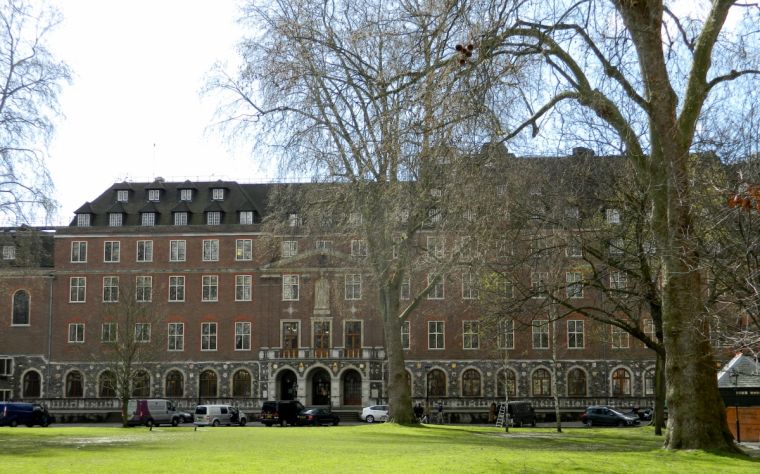Church of England bishops publish guidance on welcoming transgender people
Church of England bishops have published guidance for parishes planning services to help transgender people mark their transition.
Pastoral guidance produced by the House of Bishops Delegation Committee, whose chair Rt Rev Julian Henderson is president of the Church of England Evangelical Council, will be incorporated into the Church's Common Worship library of service resources.

It encourages clergy to be 'creative and sensitive' in using liturgy to enable people to mark a major transition in their lives.
It warns against stereotyping trans people, saying they are 'as diverse as any other social group and ministers should avoid stereotyping'. However, it says it is appropriate to 'identify the preference of a transgender person in respect of their name and gendered (or other) pronouns'.
The guidance formally commends the incorporation of the existing rite for the Affirmation of Baptismal Faith into services which mark gender transition.
It details how elements including water and oil can be incorporated into the service and, crucially, makes clear that trans people should be addressed publicly by their chosen name.
As part of the service they could also be presented with gifts, such as a Bible inscribed in their chosen name, or a certificate.
It is important, the guidance adds, that the occasion should have a distinct 'celebratory character'. It includes a wide selection of Scripture readings designed for use in the service.
The guidance says: 'The Church of England welcomes and encourages the unconditional affirmation of trans people, equally with all people, within the body of Christ, and rejoices in the diversity of that body into which all Christians have been baptized by one Spirit.'
The document – approved by the House of Bishops, which is currently meeting in London – follows a motion overwhelmingly adopted at General Synod in 2017 recognising the need for transgender people to be welcomed and affirmed in churches.
It was produced in consultation with Rev Dr Tina Beardsley, Rev Sarah Jones and Rev Canon Dr Rachel Mann, who have a personal interest in this matter and who have also consulted widely with those directly affected, and their clergy.
They said: 'Collectively, we have sought to ensure that these new Pastoral Guidance notes provide a rich and generous space for trans people to locate their lives in the existing liturgy for the Affirmation of Baptismal Faith.'
The rite for the Affirmation of Baptismal Faith is not a second baptism. The Church of England teaches that the sacrament of baptism is only to be undertaken once.
As a central part of the Affirmation of Baptismal Faith the minister lays their hands on the candidate or candidates, addresses them by name, and prays for them.
The guidance notes: 'For a trans person to be addressed liturgically by the minister for the first time by their chosen name may be a powerful moment in the service.'
Bishop Henderson said: 'We are absolutely clear that everyone is made in the image of God and that all should find a welcome in their parish church.
'This new guidance provides an opportunity, rooted in scripture, to enable trans people who have "come to Christ as the way, the truth and the life", to mark their transition in the presence of their Church family which is the body of Christ.
'We commend it for wider use.'
Christian Concern's chief executive Andrea Minichiello Williams, who is a lay member of the Church of England's General Synod, is one of the few to have criticised the new guidance.
She said it was a continuation of the Church's 'devastating trajectory towards an outright denial of God and his word'.
'It is not loving to mislead people - and wider society - into the falsehoods and myths of transgender ideology,' she said.











